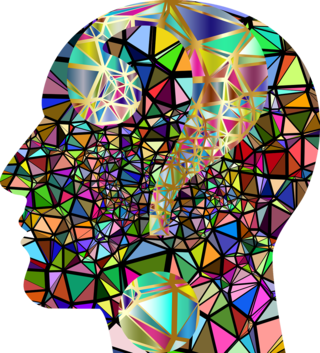Stress
How the Stress of the COVID-19 Pandemic Scrambles Your Brain
Learn how to cope with chronic stress and loneliness, and be more resilient.
Posted June 28, 2020 Reviewed by Jessica Schrader

We are living in a uniquely stressful time in the world in general and in the U.S. in particular. We are currently facing an overlapping series of crises, including a global pandemic, racism, societal division, unemployment and threats to financial stability, lack of trust in national leadership, and uncertainty regarding the outcome of the next election. Prolonged lockdowns create depression, anxiety, and loneliness, yet socializing increases our exposure to the virus. We don’t know if schools and colleges will open up in the fall and what will happen when they do. Students face disruption of their studies and teachers are being forced to adapt to rapidly shifting changes with online learning. Looking towards the fall, we fear a second wave of COVID-19 along with flu season. We don’t even know if it will be safe to go out and vote in the next election. All of these conditions are threats to our sense of calm, well-being, and stability. In other words, threat, uncertainty, and loneliness scramble our brains.
Threat
Our brains have an emergency system for alerting us to threats in the environment. The amygdala is an almond-shaped structure in the middle of the brain and acts as the brain’s alarm system. When it detects a threat, it sets into motion a cascade of stress hormones and neurotransmitters like adrenalin, norepinephrine, and cortisol to create a “fight, flight, freeze” response. This response is designed to pump blood to the heart and large muscles to fight or flee from a predator, while taking nonessential functions like digestion offline. This is why you won’t feel hungry if you feel under life threat.
The problem with chronic, amorphous threats like COVID-19 is that there’s no fighting or fleeing to be done. The virus is invisible and there’s no cure so you can’t fight it, and there’s nowhere to flee because the whole world has it.
What happens then is that we become stuck in a state of chronic threat-based physiological arousal without recovery. The stress is never over in a way that allows us to relax. Opening up the economy has created new dangers of virus spread. When your nervous system is stuck in a chronic state of threat reactivity, hormones and neurotransmitters get out of sync and don’t respond to signals to stop firing. The result is toxic, chronic stress, which impairs your immunity and increases the risk for heart disease, diabetes, depression, and many other negative outcomes.
Uncertainty
Your brain is designed to predict what is going to happen next and how best to respond so as to keep you safe and maximize your access to resources. Uncertainty makes your brain very uncomfortable. In uncertain conditions, there is no signal to tell us we are safe, even if just for the moment. As another Psychology Today blogger, Dr. Bryan E. Robinson, noted: “If your brain doesn't know what’s around the corner, it can’t keep you out of harm’s way. It always assumes the worst, over-personalizes threats, and jumps to conclusions.”
Researchers at University College, London designed a computerized experiment in which participants had to guess the likelihood of finding money under a rock. If they guessed wrong, a snake appeared, and they received a mild electric shock. It turns out that participants were most stressed when there was a 50/50 chance of finding a snake, even compared to when they knew the snake was definitely there.
If you know what’s coming, your brain can prepare you to deal with it. If you don’t know but there's a possibility of harm, your brain gets vigilant, and overactive trying to guess the most likely outcome and execute a coping strategy. Because the best strategy is not clear, this can lead your brain to keep going over and over the information trying to find an answer. This creates a state of chronic stress and worry.
Loneliness
One of the most difficult things about the current COVID-19 crisis is that we can’t rely on interactions with other people to soothe our nervous systems. Under normal conditions, the mirror neurons in our brains allow us to be soothed by other people’s warm smiles, body language, or gentle touch. Even talking to an empathic friend is soothing to our nervous systems.
While we can get a piece of this interaction on Zoom, it’s not quite as rich and comforting an experience. Even if we do get together in a socially distanced way, there is so much we have to monitor. Are our masks on? Do we need to use more hand sanitizer? Are we too close? How much exposure has the other person had? This can interfere with your ability to be present in the moment and listen mindfully in a way that can soothe your loved one’s stressed-out brain. For those of us who live alone or who can barely leave the house because you are high risk, the loneliness and disconnection are even greater. People in nursing homes can’t get the visitors they normally do; elderly people can’t travel to be with grandchildren; college students can't see their dorm friends or sorority sisters.
Research on loneliness
Research studies confirm that loneliness is bad for our physical and mental health. According to a meta-analysis co-authored by Julianne Holt-Lunstad, Ph.D., at Brigham Young University, lack of social connection heightens health risks as much as smoking 15 cigarettes a day or having an alcohol use disorder. She suggests, based on the research literature, that loneliness and social isolation are twice as harmful to physical and mental health as obesity.
What you can do:
What can we do to address these toxic aspects of stress associated with COVID-19? There are no magic bullets, but the following strategies may help protect your mental health:
Acceptance
Accepting that the virus is here and will stick around for a while can protect you from feeling uncertain, chronically ruminating and trying to guess when it will end, and from being hypervigilant about the news reports on virus spread. Acceptance does not mean being passive, but rather is an active process of learning to live more peacefully with the things you cannot change. It has its roots in mindfulness and Eastern philosophy.
Gaining perspective
Taking a step back to look at the big picture of your life can be helpful to stop you from overestimating the personal danger. If you are taking reasonable precautions, staying home a lot, wearing a mask, and avoiding crowded places, your risk is considerably lower. If you are an essential worker, you may be at higher risk though. You need to balance focusing on the threat posed by the virus and minimizing potential losses with focusing on positive aspects of your life.
Think about what the virus and political situation hasn’t taken away from you. You may still have a loving family, pride in your work, healthy routines, or meaningful hobbies. You may still be connected to your spiritual or work community, even if not in person. That being said, if you have lost a loved one to COVID-19 or are seriously ill, the immediate crisis is likely to dominate your thinking and that is to be expected.
Maintaining hope
It is important to have realistic expectations, but also to keep up your hope for a better future. Humans have an amazing capacity to adapt to new and difficult circumstances, so that we adjust and begin to feel less uncomfortable over time. The 20th time you wear a mask feels much easier than the first time. The U.S. also has outstanding health care and public health leaders, like Dr. Fauci, who are helping guide the country’s response to the virus. Even if politicians are misguided, increasing numbers could lead to course corrections or could motivate the public to take more appropriate precautions. With the coming election, there may be new political leadership with a more proactive approach and less divisiveness. We also have some of the greatest scientific minds in the country and immense financial resources directed to finding a vaccine.
Finding your resilience
Resilience means being able to endure difficult times and bounce back. Seeing yourself as a resilient person who can get through this difficult period can be a valuable mindset change.
Think about the difficult times you have endured in the past and what helped you get through. Remember your inner strengths like courage, wisdom, or having an entrepreneurial spirit. Think about the people in your life or community resources you can turn to for help. Think about concrete ways you can contribute to helping your community. Research shows that helping others increases our own feelings of self-worth.




